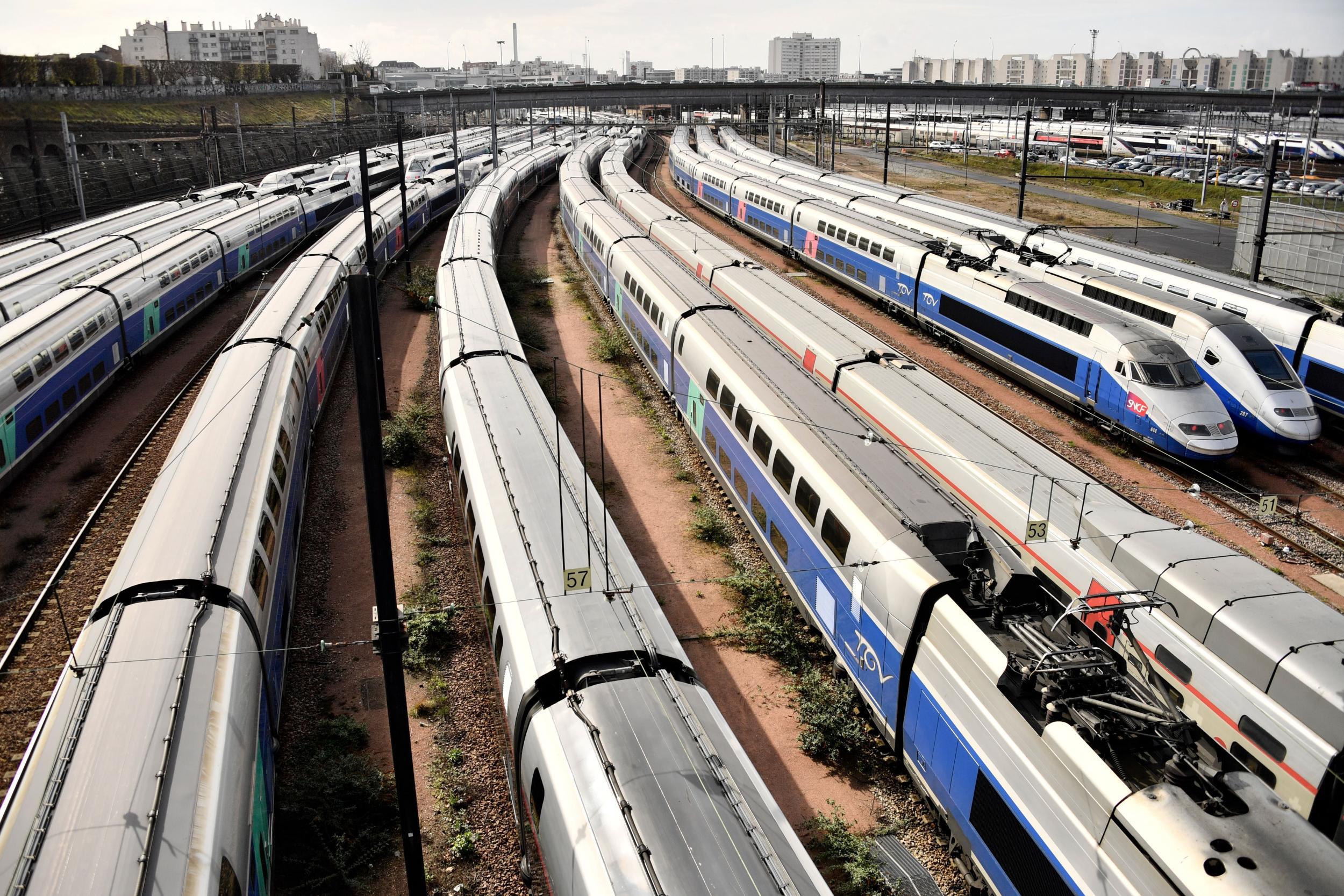French Railways to launch driverless trains after summer of strikes
An autonomous locomotive in northern France is controlled by a “téléconducteur” at the control centre in Lyon. Fully-automatic services are expected to be up and running within five years

Your support helps us to tell the story
From reproductive rights to climate change to Big Tech, The Independent is on the ground when the story is developing. Whether it's investigating the financials of Elon Musk's pro-Trump PAC or producing our latest documentary, 'The A Word', which shines a light on the American women fighting for reproductive rights, we know how important it is to parse out the facts from the messaging.
At such a critical moment in US history, we need reporters on the ground. Your donation allows us to keep sending journalists to speak to both sides of the story.
The Independent is trusted by Americans across the entire political spectrum. And unlike many other quality news outlets, we choose not to lock Americans out of our reporting and analysis with paywalls. We believe quality journalism should be available to everyone, paid for by those who can afford it.
Your support makes all the difference.Strike-hit French Railways is rapidly developing “drone trains”, with the aim of running fully-automatic services within five years – and “semi-autonomous” trains by 2020.
According to Railway Gazette, the president of the national rail operator, SNCF, wants train drivers to become more like pilots, monitoring the journey while technology optimises performance.
SNCF group president Guillaume Pepy vowed to put France at the forefront of innovation in the rail sector.
The state-run enterprise has a test circuit in northern France where a locomotive is “driven” by a “téléconducteur” at the control centre in Lyon, hundreds of miles away.
SNCF aims to have driverless freight trains operating by 2021, with passenger trains running on the RER network through Paris by 2023. These services will operate at speeds of up to 75mph.
By 2025, TGV high-speed trains will be automated, allowing the number of services to run on a line to increase from 13 to 16 per hour.
Industrial relations between SNCF and the rail unions in France are strained.
For three months until the end of June, staff at SNCF were on strike on two days out of every five in a dispute about employment conditions.
The unions have yet to respond to the latest moves on autonomous trains.
Separately, the RMT union has called a strike of Eurostar staff on 30 September and 1 October in protest at “a spate of service problems that dumped thousands of passengers on the cramped concourse at St Pancras”.
The union’s general secretary, Mick Cash, said: “RMT will not tolerate a position where our members are left to pick up the pieces due to corporate failures.”
Eurostar has called for talks to avert the stoppage.
Trains in the Australian mining industry have been operating without drivers since July.
In the UK, the Docklands Light Railway is fully automatic with the option of human override.
The section of Thameslink track through central London from St Pancras to Blackfriars is also automated, in a bid to maximise the line capacity.
Join our commenting forum
Join thought-provoking conversations, follow other Independent readers and see their replies
Comments